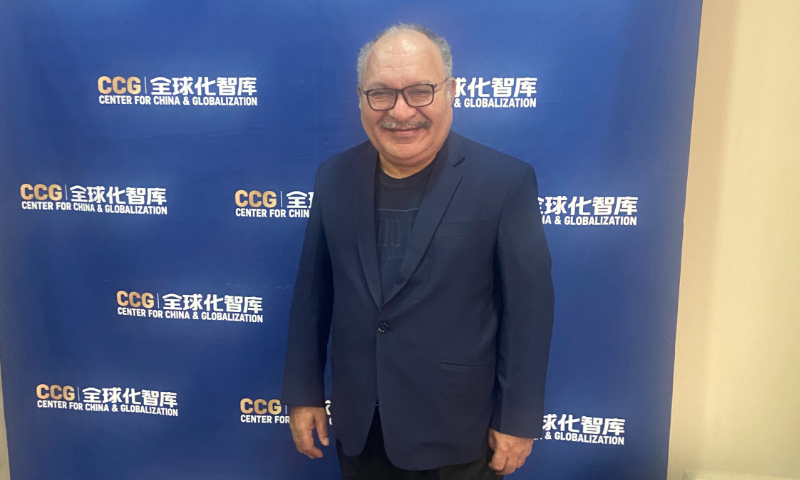We will not be used by other countries to attack China, says former PNG PM

While Papua New Guinea has recently signed a security pact with the US, former Prime Minister of Papua New Guinea Peter O'Neill told the Global Times in an exclusive interview that his country will not be used by other countries to attack China.
"We should not be used by other countries to advance their own issues, and we are not in conflict with China. We have no problems with China. We should be able to maintain our strong, very good, friendly relationship that we have established since our independence 48 years ago," he told the Global Times.
According to media reports, the US signed a defense agreement with the Pacific Island nation of Papua New Guinea in May, allowing US military access to the country's waters and ports. Some analysts expressed concern that this agreement will strengthen Washington's presence in the Western Pacific, and that the provisions of the defense agreement will play a crucial role for Washington if a conflict erupts in the Taiwan Straits.
During the interview, the former Prime Minister stressed that Papua New Guinea should not be involved in the China-US game, and the country has no conflict with China. Adding that Papua New Guinea should develop ties with China.
"China is a very important business partner, economic partner and a friend, and has strong people-to-people relationship with our country. That is something that we need to continue," he said.
He also stressed that "We've always said that there is one-China policy. We've always believed in one-China policy. Papua New Guinea is maintaining that policy and we will stand by that policy."
O'Neill sat down for an exclusive interview with the Global Times during an event hosted by the think tank Center for China and Globalization on Wednesday.
In recent years, relations between China and South Pacific Island nations have developed rapidly. However, this win-win cooperation has attracted attention from countries including the US and Australia who have sought to strengthen their presence in the region as a way to "counter" China's influence. Some Western media outlets even hyped up the vicious rhetoric that China is a "destroyer" of peace and stability in the region.
Regarding these accusations, O'Neill told the Global Times that China has a great opportunity to silence those critics, who certainly are not doing as well or as much as China in the Pacific.
"China is doing more than these critics in the Pacific. China is building roads, China is building hospitals, China is building schools. This is sort of a development partner that the Pacific and Papua New Guinea need. We don't need people just talking. I think China has been a great friend and I think we can do more," he said.
The former prime minister pointed out that China is doing a great job in the Pacific. "Don't let some of the critics tell you otherwise. I believe very strongly that China has more to do and to work with the Pacific in terms of bringing up more economic opportunities."
O'Neil also noted that China's experience in development over the past decades is important for them to learn from.
"China has got a great opportunity to share some of the experience. China has gone through in the past 40 or 50 years in development. We have the same challenges in the Pacific. We are very small countries, we've got large population, we have got difficulties in developing our people's standard of living to improve, just like China has done in the past.
"China has experience in making sure that its population has got better standard of living, better health, better education, better infrastructure, access to IT. All those are challenges that we face and I think we can learn a lot from China."
In 2018, then Prime Minister O'Neill, led a delegation to visit China and signed a Memorandum of Understanding on the Belt and Road Initiative (BRI), making Papua New Guinea the first Pacific Island nation to join the BRI.
Reflecting the changes that the BRI has brought to the country over the past five years, O'Neill said "My feeling is that the BRI has helped Papua New Guinea build better infrastructure. We have an access to finance and we've never had funding for this type of infrastructure before. The terms of the finances are very, very concessional, meaning that it is cheap and it is affordable for a country to build roads that will add economic value to the nation."
"I think you will find that China has done a lot for Papua New Guinea and we want to continue to improve on our trade. We want to export more to China and buy more from China. It's a win-win situation for both countries," he said.